1150 Personalities of the Western Front
Heard Amid the Guns: True Stories from the Western Front, 1914-1918
by Jacqueline Larson Carmichael
Victoria: Heritage House, 2020
$26.95 / 9781772033373
Reviewed by Alan Livingstone MacLeod
*
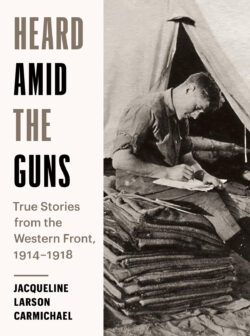 Jacqueline Larson Carmichael’s Heard Amid the Guns is a book inspired by her two granddads, each a soldier of the First World War who survived. The author remembers her maternal grandfather, Charles W.C. Chapman, with warmth uncontaminated by any hint that there might have been something not to like about her mother’s father: “He had kind blue eyes that crinkled at the corners and a hearty laugh that rattled in a chest damaged by mustard gas.”
Jacqueline Larson Carmichael’s Heard Amid the Guns is a book inspired by her two granddads, each a soldier of the First World War who survived. The author remembers her maternal grandfather, Charles W.C. Chapman, with warmth uncontaminated by any hint that there might have been something not to like about her mother’s father: “He had kind blue eyes that crinkled at the corners and a hearty laugh that rattled in a chest damaged by mustard gas.”
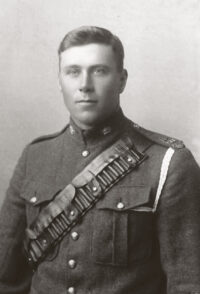
Stories about men without serious flaws are perhaps not as intriguing for most readers as those dealing with characters having a dark side a good writer brings to irresistible light. The author’s paternal grandfather, George Anderson Vowel, had a telling nickname, “Black Jack.” He may have lacked kind eyes and a hearty laugh but Black Jack’s story commands more of the granddaughter’s attention—and the reader’s interest. Soldier Vowel was promoted after being awarded a Military Medal for gallantry, but he was soon busted back to Private for taking an unauthorized absence from duty and for engaging in fisticuffs with a soldier on his own side rather than one in the enemy’s trenches.
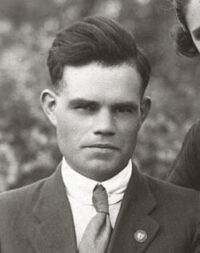
Vowel took time to write letters, highly readable ones Carmichael shares with her audience. Her grandad was a decorated war hero, but Carmichael’s portrait is not one of a man without blemishes. Black Jack Vowel was damaged by war. Anxiety induced by incessant artillery barrages remained with him long after the fighting was over—his helmet “was the bell and his head the clapper’’—and his family paid heavily for the harm done by war to husband and father: “fatherhood was another kind of trench” for Black Jack Vowel.
Carmichael writes briskly and evocatively not just about her damaged grandfather but a stream of compelling characters from the First World War. Many of the people encountered in this book are Canadians. But not all. The book’s large cast includes Britons, Americans, Australians, New Zealanders.

This is a book reflecting a strong social conscience. The author introduces us to William Henry Johnson. Rejected for service as an infantryman in the American army because he was Black, Johnson was welcomed for duty as a French poilu. In the Argonne Forest in May 1918, he was wounded 21 times in hand-to-hand fighting but managed despite his wounds to rescue a fellow soldier. After the war he returned to the American South to discover that nothing had improved in his native land. He gave speeches aimed at making his world a better place. He made little difference: Johnson died, destitute, from untreated tuberculosis in 1929.
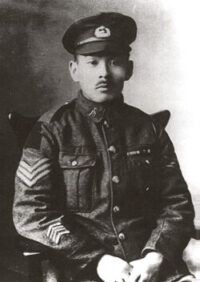
A decorated Canadian war hero, Masumi Mitsui had succeeded in being accepted as an infantryman in the Calgary-based 10th Battalion despite his heritage. One of several Japanese Canadians awarded the Military Medal for gallantry in the First World War, Mitsui discovered his heroics didn’t much matter a generation later. After Pearl Harbor he was rounded up together with other Japanese Canadians and consigned for the duration of the Second World War to an internment camp for enemy aliens.
The book’s title comes from the fifth line of John McCrae’s “In Flanders Fields”, the best known—and in some quarters best-loved—of Great War poems. Heard Amid the Guns is a book that elicits a range of emotions. At times the reader feels grief or anger but there is plenty to provoke the occasional smile, even outright laughter. Exultation too. We meet Charlotte Edith Anderson Monture. Denied a nursing education in Canada because of her Indigenous (Mohawk) status, she went to the U.S. where she finished at the top of her nursing class, then volunteered with the Army Nurse Corps of the American Expeditionary Force. After the war Edith Monture returned to the Six Nations Reserve in Ontario, continued to work as a nurse, and lived to be 106.
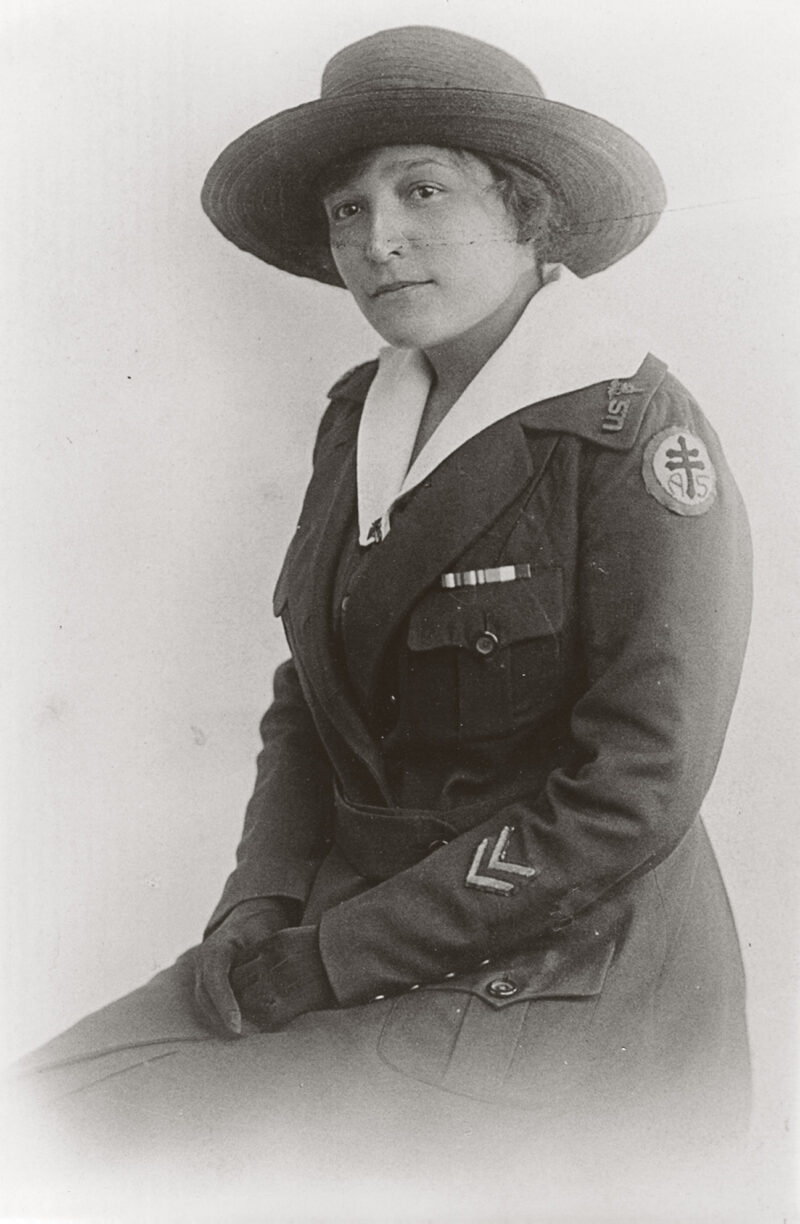
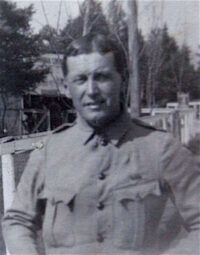
Carmichael lets the facts of these stories speak for themselves without telling us what we should feel about them.
Some of the memorable players in this book are not human. What became of John McCrae’s horse, Bonfire? Carmichael tells us where to turn for an answer. Who knew about the war hero Filax who merited a French Croix de Guerre and graced the cover of Ladies’ Home Journal in 1918? Filax was a dog. How many war experts reading this book knew anything about another war hero, Cher Ami, the pigeon that, despite being shot through the chest and blinded in one eye, delivered a message that saved the survivors of a besieged American infantry battalion?
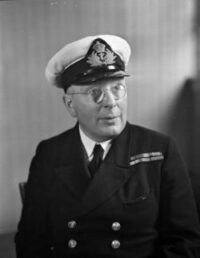
Even for someone imagining he knows a good deal about the Great War of 1914-18, there is much that is unfamiliar in Carmichael’s book. The book is chock-a-block with individual stories extracted from sources such as the Canadian Letters and Images Project. The images—there are plenty of them—enhance the excellent text.
Heard Amid the Guns will not gratify the reader looking for another exhaustive treatment of a given battle campaign. Do not stop here for new thinking about the relative merits of the military strategies at Vimy Ridge or Passchendaele.
Was there ever a book free of human error? Probably never. There are a few missteps in Heard Amid the Guns. Just a few. Victoria Cross recipient Rowland Bourke did not succumb to injuries sustained in the action for which he was awarded his VC. Bourke survived the war, lived into his 70s and lies under a veteran’s VC-marked headstone at Royal Oak Burial Park in Saanich.
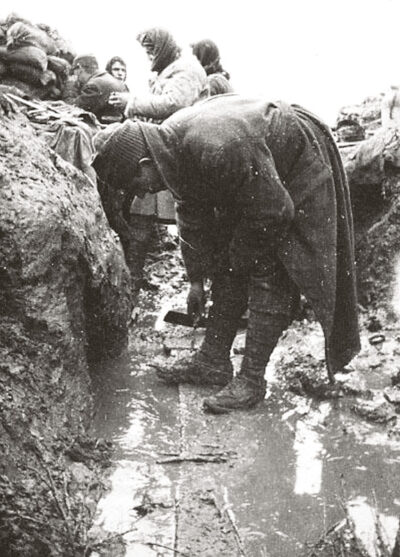
Carmichael cites Lou Clarke as another VC recipient. It is Leo Clarke she means to reference, one of three soldiers from a single Winnipeg street awarded the VC. It was Pine Street at the time of the war but based on the heroics of the neighbourhood lads the street was eventually renamed Valour Road. The author tells us that Margaret Marjory Fraser—one of fourteen nurses lost in the torpedoing of the hospital ship Llandovery Castle—was the daughter of a British Columbia lieutenant-governor. Nurse Fraser’s dad was indeed a lieutenant-governor, but of Nova Scotia, not BC.
The reader knows he has been captured when he is induced to learn more about a character Carmichael introduces. Such characters abound in Guns. I wanted more detail about several of the people encountered in this book and went looking to find it.
This book is a legitimate page-turner, not perhaps in the same sense that applies to Lee Child’s latest Jack Reacher novel, but the author delivers a parade of fascinating characters one after another, page after page. This is a surprising and moving book, and an edifying one too. This reviewer read Heard Amid the Guns in one go, and never felt the urge to take a break to mow the lawn.
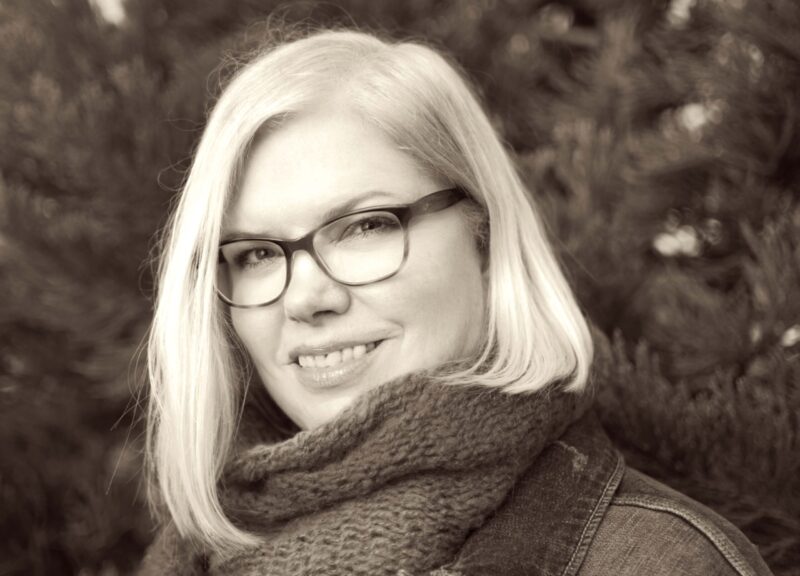
*
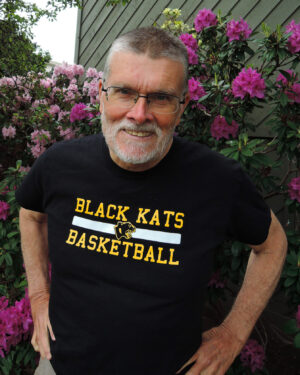
After a career in labour relations, Alan Livingstone MacLeod made good on a long-time fantasy of becoming a writer of books. Inspired by the remarkable stories of a great-uncle who fought in the trenches of the Great War, and lived to tell about it, MacLeod produced Remembered in Bronze and Stone (Heritage House, 2016), an account of Canadian war memorials featuring the life-sized figure of a soldier. He followed that with From Rinks to Regiments (Heritage House, 2018), about Hall of Fame hockey players who were also WWI soldiers. This October, Heritage House will publish his newest book, Capitals, Aristocrats and Cougars, the story of Victoria’s hockey professionals of 1911-26. The Victoria Cougars of 1925 were the last team not part of the National Hockey League to win the Stanley Cup. MacLeod divides his time—as pandemics permit—between Victoria, BC, and Boularderie Island, Cape Breton. Editor’s note: In February 2019, Wayne Norton reviewed Alan MacLeod’s book From Rinks to Regiments for The Ormsby Review.
*
The Ormsby Review. More Books. More Reviews. More Often.
Publisher and Editor: Richard Mackie
The Ormsby Review is a journal service for in-depth coverage of B.C. books and authors. The Advisory Board consists of Jean Barman, Wade Davis, Robin Fisher, Cole Harris, Hugh Johnston, Patricia Roy, Maria Tippett, and Graeme Wynn. Scholarly Patron: SFU Graduate Liberal Studies. Honorary Patron: Yosef Wosk. Provincial Government Patron since September 2018: Creative BC
“Only connect.” – E.M. Forster
One comment on “1150 Personalities of the Western Front”
Wonderful work you all are doing for enlightening future generations. What is printed stays in the world. We all will perish but our works will speak louder.